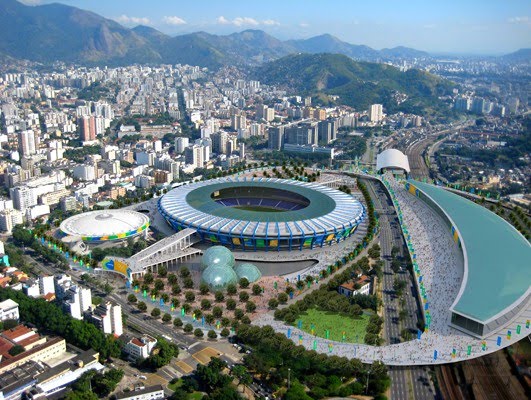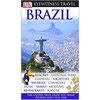The city of Rio de Janeiro has been elected as the Host City of the Games of the XXXI Olympiad in 2016.
The Rio 2016 Olympics will be the second edition held in Latin America (after Mexico City 1968), the first edition held in South America, the third edition held in the southern hemisphere (the first of those three outside of Australia), and the first games in a lusophone country.

The Rio 2016 Olympic Games will be, first and foremost, a celebration of athletes, who will perform in world-class venues all located in the host city itself. The Rio 2016 Olympics will also celebrate and showcase sport, thanks to the city’s stunning setting and a desire to lift event presentation to new heights. At the same time, Rio 2016 will be an opportunity to deliver the broader aspirations for the long-term future of the city, region and country – an opportunity to hasten the transformation of Rio de Janeiro into an even greater global city.
Rio 2016 Olympics will provide memories of a lifetime for every athlete and all other members of the Games Family. And the Games will leave a powerful legacy by meeting the long-term needs of the city and its residents. Every aspect of the Rio Olympic Games concept has been designed to align with the strategy for the future of the city and country.

Brazil's economy is now the tenth largest in the world - and predicted to be fifth by 2016. Brazil is the world's second biggest food exporter, one of the world's largest oil and ore producers and the fifth largest advertising market. The Brazilian economy is the engine of South America and one of the world's top 10 consumer markets. Brazil have the highest levels of Internet use in the world. The enduring strength of the economy - even in the current global climate - has enabled the Brazilian Government to guarantee the investments needed for the 2016 Olympics in Rio de Janeiro.
Rio 2016 Olympics will provide the best possible environment for peak performances. Athletes will enjoy world-class facilities, including a superb village, all located in one of the world’s most beautiful cities, in a compact layout for maximum convenience. The competition venues will be clustered in four zones – Barra, Copacabana, Deodoro and Maracanã – and connected by a high-performance transport ring. Nearly half of the athletes will be able to reach their venues in less than 10 minutes, and almost 75 per cent will do so in less than 25 minutes. Of the 34 competition venues, of which 18 are already operational, eight will undergo some permanent works, seven will be totally temporary and nine are constructed as permanent legacy venues.
The Rio 2016 Olympics program is scheduled to feature 28 sports and a total of 38 disciplines. There were two open spots for sports and initially seven sports began the bidding for inclusion in the 2016 program. Baseball and softball, which were dropped from the program in 2005, karate, squash, golf, roller sports (inline speed skating) and rugby union all applied to be included.

The Maracanã Stadium will host the opening and closing ceremonies. Besides the Maracanã Stadium, the football matches will also take place in Salvador (Fonte Nova Stadium), São Paulo (Undefined), Belo Horizonte (Mineirão Stadium) and Brasília (National Brasília Stadium). All these stadiums will also be used in the FIFA 2014 World Cup.

 Welcome to Travel to Brazil.
Welcome to Travel to Brazil.
